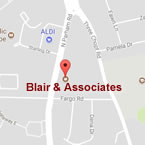Details and Deadlines for Individuals and Corporations
November 2017
The Commonwealth of Virginia has initiated and supports a variety of tax credits that help businesses and individual tax payers save money while furthering valuable economic development, social and environmental improvement projects.
If you find that you will owe the state tax this year, these are ways to mitigate that and possibly save you some money.
Important: You must take advantage of eligible tax credits by December 31, 2017.

So let’s start with a brief lesson on “What are tax credits?” The best way to describe tax credits is in contrast to what most taxpayers understand … tax deductions. Tax deductions reduce the amount of your income subject to tax. Tax credits directly reduce the tax itself.
For example, assume you or your business spends $5,000 that results in a tax deduction. That will reduce your taxable income by $5,000. In a 25% tax bracket, you would save $1,250 in taxes.
Now compare that with a $5,000 tax credit. That amount is subtracted from the amount of tax owed as opposed to an offset to income … as is the case with a tax deduction. Result: Your tax bill is reduced by the full $5,000 tax credit!
The purpose of tax credits is to encourage investment in activities and efforts that will stimulate employment, enhance employee skills development, promote research & development and motivate participation in social and environmental improvements. Taxpayers, businesses and individuals, find tax credits trump tax deductions every time in saving tax dollars.
Using tax credits, it’s possible to completely offset your Virginia tax liability.
In this article, we’ve reviewed the six commonly used Virginia tax credits that boost social, environmental and educational goals.
Caution! The qualifications, limitations and taxpayer requirements are complex. The following is meant as an overview only. If you have a thirst for research, we’ve included some links to help you out.
Better yet, give us a call and we’ll quickly help you determine if you qualify and for how much.

Community/Social Tax Credits
Neighborhood Assistance Tax Credit (NAP):
The purpose of the Neighborhood Assistance Program (NAP) is to encourage businesses, trusts and individuals to make donations to approved non-profit - 501(c) (3) - organizations for the benefit of low-income persons. In return for their contributions, tax credits equal to 65 percent of the donation may be applied against their Virginia state income tax liability.
As an added “plus”, the contribution is 100% deductible on the taxpayer’s federal return. Taxpayers may choose to donate appreciated stock in place of cash which will avoid payment of the federal capital gains tax, and thereby further benefiting both the taxpayer and the non-profit.
The bottom line is that NAP tax credits allow taxpayers to support a worthy cause and save taxes as well.
The NAP tax credit is non-transferable.
Click here for a complete list of current NAP approved 501(c) (3) organizations.

Education Improvement Scholarships Tax Credits Program (EISTC)
Tax credits are available for individuals and businesses that make contributions to approved scholarship foundations providing scholarships to eligible students. Scholarship funds must be applied to pay for qualified educational expenses incurred in attending eligible nonpublic schools (K-12) in Virginia.
Contributions may be either monetary or donations of marketable securities.
Note: donors must be preauthorized by the Virginia Department of Education prior to making a donation. Click here for the Preauthorization Request Form.
Tax credits equal to 65% of the donation may be applied against the donor’s Virginia state income tax liability.
Unused tax credits may be carried over the next five taxable years or until the total credit is taken, whichever happens first.
The EISTCP tax credit is non-transferable.

Land Preservation & Historic Building Rehabilitation Tax Credits
Note: These two tax credits (LPC and HRC) are transferrable. As such, there normally are parties that qualify for these credits that can’t utilize all they are allotted. These parties then look to “transfer” them, often at a discount, in order to recoup some of their investment. This can be a complex transaction and we encourage you to contact us for a more thorough explanation.
Land Preservation Tax Credit (LPC):
Taxpayers may donate land or conservation easements and enjoy a tax credit equal to 40 percent of the value of the donation. Currently, the tax credit limitations are $20,000 in 2017 and $50,000 per year thereafter.
Tax credits may be carried forward for up to 13 years. Unused credits may be sold, allowing individuals with little or no Virginia income tax burden to take advantage of this revenue producing benefit.
As you may expect, there are other conditions and requirements. Click here to research.
Historic Rehabilitation Tax Credit (HRC):
The HRC tax credit provides a dollar-for-dollar reduction in Virginia state tax liability for taxpayers who rehabilitate historic buildings. The amount of the Virginia credit is 25 percent of eligible rehabilitation costs.
Additionally, there is a matching federal credit of 25 percent. Taxpayers who qualify may benefit under both programs and enjoy credits of 45 percent of eligible rehabilitation expenses.
While credits may not be directly sold by an individual taxpayer, investors may participate in a limited partnership and receive tax credits as a condition of ownership.
Yes, there are other conditions and requirement. Click here (HRC) to research.
Lesser Known Qualified Virginia Tax Credits
Food Crop Donation Tax Credit (FCD):
The Food Crop Donation Tax Credit is available for Virginia individual and corporate taxpayers engaged in the business of growing and donating food crops to a nonprofit food bank. The amount of the credit is equal to 30 percent of the fair market value of crops donated.
There is a limit of $5,000 in credits per taxpayer per year.
Note: The total annual tax credits available are $250,000. So if you are interested and think you qualify, be sure to submit your application sooner rather than later.
Livable Homes Tax Credit (LHTC):
This program is designed to improve accessibility and universal visitability in Virginia’s residential units. It provides state tax credits for the purchase of new units or the retrofitting of existing housing units.
Tax credits are available for up to $5,000 for the purchase/construction of a new accessible residence and up to 50 percent for the cost of retrofitting existing units, not to exceed $5,000.
Credits that exceed eligible individuals’ or licensed contractor’s tax liability may be carried forward for up to seven years.
Yes, there are other conditions and requirement. Click here to research.
Summary
As the foregoing illustrates, there is much to be gained by Virginia taxpayers who qualify for tax credits. Likewise, there is much to do to “unravel the ball of yarn” of regulations to meet the requirements.
Again, the above presentation is meant as an overview only. Your best bet … give us a call and we’ll quickly help you determine if you qualify and for how much.

